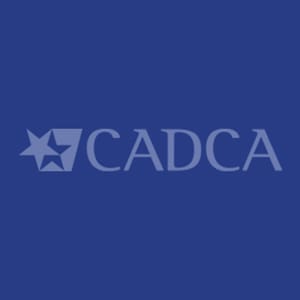“What makes coalitions unique is their potential to combine the different perspectives, knowledge and skills of a group of people and organizations creating synergy,” is part of Sharron Michels’ email signature. And it is that belief in community-building that Michels believes makes her coalition unique.
The Collaborating for Youth’s (CFY) Youth Coalition, in Gettysburg, Pa. rallied around the issue of prescription drug and over-the-counter medicine abuse in a big way, earning CADCA’s Dose of Prevention Award for its comprehensive approach to help raise awareness of the abuse of medicines in their community.
Michels, who is the coalition’s Executive Director, was joined by several adult and youth coalition members on stage as they received the award last month at CADCA’s National Leadership Forum.
Coalition members worked with local officials to get a proclamation by their Adams County commission naming October as National Medicine Abuse Awareness Month and engaged in a number of activities to educate parents and youth about the dangers of abusing prescription and over-the-counter drugs.
They hosted a widely attended town hall meeting, bringing together law enforcement, educators, parents, healthcare providers, legislators and others to discuss solutions to their medicine abuse problems.
The coalition conducted educational workshops aimed at adults and youth, hosted prescription drug take back days and had six permanent prescription drop off boxes installed in the community to help local citizens properly dispose of unused and expired medicines.
They partnered with 16 local pharmacies to create a “bag stuffer” that informs customers about how to safeguard and properly dispose of their medicines when they’re finished. All in all, the coalition distributed 27,000 educational pieces.
Collaborating for Youth also engaged young people in creating radio PSAs and billboards about the dangers of abusing medicines, and conducted media outreach resulting in extensive coverage of the local medicine abuse problem.
“Like in many other parts of the country, about five years ago, we started seeing state and local data that indicated we had a prescription drug and potential heroin abuse issue in our rural community,” Michels said. “We thought, ‘What can we do to intervene so they also don’t become addicted? We looked at our primary risk factors, which were high, and the perception of risk, which was low.”
Michels heard reports from numerous youth coalition members that the norm in their town was pharming parties and robo-tripping, the slang term used to refer to taking extremely high doses of over-the-counter cough medicines containing dextromethorphan. The data also reflected this trend.
Their prevention efforts of changing the perception of risk and reducing availability started making a difference. According to the Pennsylvania Youth Survey (PAYS) for Adams County, in 2013, 86 percent of students (grades 6, 8, 10, 12) believe that people risk harming themselves (physically or in other ways) if they use prescription drugs that are not prescribed to them and 96 percent of students (grades 6, 8, 10, 12) report that their parents feel it would be wrong for them to use prescription drugs not prescribed to them. The number of students at risk because of the perceived availability of drugs declined from 50 to 32 percent.
They will continue to host take-back events bi-annually, as Michels explained that her community expects them now.
Heroin was known as an inner-city drug problem for many years, and now has seeped into the rural communities across the country like Michels’.So, their large, rural county collaborated with emergency medical technicians, hospital staff, seven law enforcement agencies, more than 50 youth, and all the other sectors to ensure that the perception of risk increases as the availability decreases.
The coalition, in its 10th year as a Drug-Free Communities grantee, is now working on obtaining lock boxes for some of its residents.
“It really is a community award and a great recognition of the power of what a coalition is. We can do large-scale kinds of things that an individual cannot do alone. The recognition of your work is always meaningful, but because it was recognition of the community building we have been doing, using multiple strategies to really saturate our county and get everyone onboard and to me, that is where the power is.”
Michels and her colleague Samiah Slusser, CFY programs manager and youth mentor, who nominated the coalition for the Dose of Prevention Award, will share the CADCA-produced video highlighting their efforts at their annual volunteer recognition event in April.


